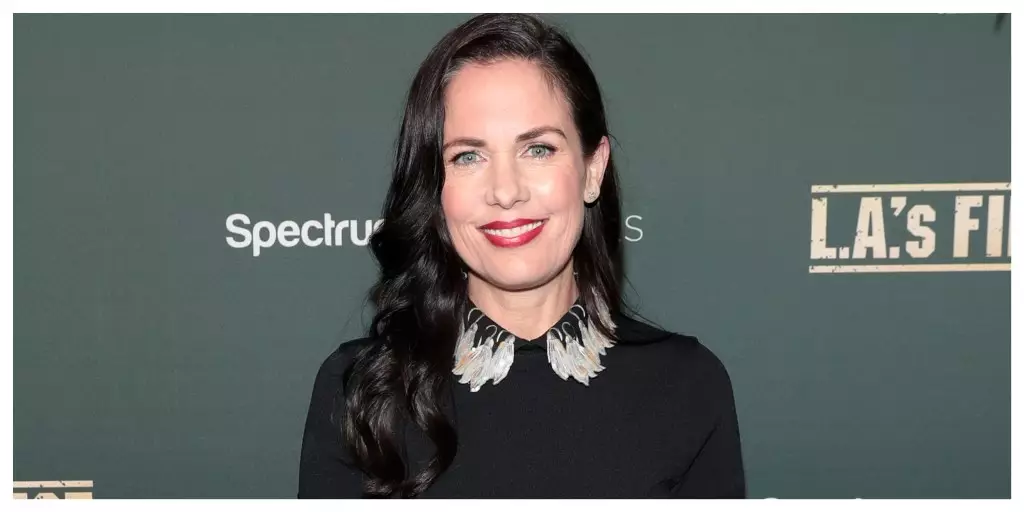At the forefront of television production is Katherine Pope, the president of Sony Pictures Television Studios. Recently, during a keynote interview at the MIA event in Rome, she discussed how historical insights from her extensive career could guide the industry into a more efficient future. With a background spanning over a decade at NBCUniversal and now more than two years at Sony, Pope provided a wealth of experience necessary for rectifying modern challenges.
Pope emphasized the importance of adhering to the core values that once characterized the American broadcast industry. “There was a sense of time and money in the U.S. broadcast system,” she remarked, recognizing that urgency and efficiency have always been integral in that environment. Today, however, she observes a noteworthy rumination within the industry stemming from its past excesses. “We’re now seeing the hangover of the boom times,” she explained, signifying a shift back towards the disciplined approach necessary for producing quality content. This acknowledgment leads us to a more critical perspective—the necessity of balancing creativity with fiscal responsibility.
Pope highlighted that the friction often found in production budgets can lead to innovative solutions. This tension, while sometimes seen as an obstacle, becomes a catalyst for unforeseen creative outcomes, ranging from location choices to production schedules. By marrying the structured process of traditional broadcasting with the artistic flexibility that contemporary series have embraced, Pope believes that a more refined production model can emerge.
Key Projects and Strategic Independence
Currently, Pope’s team is gearing up for major releases, including the much-anticipated final season of The Boys, alongside several intriguing spinoffs like Gen V and Vought Rising. This ambitious lineup reflects Sony’s commitment to storytelling and staying relevant in an increasingly crowded market. Notably, Pope praised the company’s strategic independence, suggesting that this autonomy has positioned them favorably amidst turbulent industry shifts.
In a shifting landscape marked by the hassle of streaming wars and changing business models, Pope’s valid point lies in Sony’s concentrated focus on producing quality entertainment rather than getting ensnared in distractions. “Sony has been singularly focused,” she noted, citing the studio’s extensive library of intellectual properties ranging from films to video games, music, and anime. Such resources equip them not just to compete, but to innovate even further.
As she navigates through this volatile period in media, Pope asserted a crucial philosophy: “We are here to make TV shows, period.” This clarity in purpose could serve as a guiding principle for many producers striving for differentiation in a saturated market. The emphasis on clear direction could very well be the antidote to the confusion that often plagues content creators in today’s multifaceted landscape.
The Dynamics of Audience Engagement and Content Creation
Particular emphasis was placed on The Boys, a series that has become emblematic of Sony’s production lineage. With unprecedented viewership metrics, Pope revealed that the fourth season achieved record numbers. Such success, according to her, embodies the “holy grail of series television.” Maintaining engagement throughout the lifespan of a series is no small feat, yet Pope’s comments underscore the intense correlation between quality content and audience retention.
However, a darker current runs through the conversation as Pope addresses the implications of data-driven decision-making within the industry. “It is absolutely untenable,” she stated unequivocally, criticizing how it affects the fan experience. The long wait between seasons can lead to diminishing engagement, an outcome that feels contrary to the swift-paced expectations of modern viewers. This gap is not just a logistical issue—it’s a determent to the very essence of fandom.
Pope’s approach champions earlier script developments and accelerated production timelines, aiming to transform the narrative around season renewals. The necessity for quicker turnarounds is clear; in a landscape rife with content options, losing fans is not merely an inconvenience, it’s a crisis. Frequent viewer engagement becomes paramount to sustaining interest, underscoring the need for a higher synchronization between production pace and consumer anticipation.
Katherine Pope’s insights garnered from her rich career in television production offer a beacon of hope in an industry rife with challenges. By advocating for a return to the robust principles of the traditional broadcasting model while embracing the creative breakthroughs of modern television, she identifies a potential path forward. As her team prepares for exciting projects and strives for efficiency, the essence of Pope’s message rings true: clarity in purpose, respect for the audience, and a synergy between creativity and practicality are crucial for navigating the future of entertainment. In an era where every second of viewer attention counts, adapting to these changes can lead to storytelling that resonates deeply, proving vital for long-term success.

